Question
Rather than demonstrating your ability to recall or search for course data, you will be applying the concepts and principles covered throughout the course in
Rather than demonstrating your ability to recall or search for course data, you will be applying the concepts and principles covered throughout the course in a case study analysis. We will be covering Minicase 27, “Alibaba and China’s E-Commerce: Reality Bites” starting on page 509 of our textbook (page number may vary for electronic versions of our e-textbook, please look for the case’s title). Textbook : Strategic Management 3e. By Frank T. Rothaermel
you are expected to:
- Apply course concepts; define them, explain them and use them to support your conclusions.
- Conduct independent research well beyond reading the case, then use this research in your responses and properly cite all sources used.
- Present a professional quality work-product.
- Support each of your answers with cited and documented facts.
- Address every issue posed in each of the questions.
Requirements:
Please submit a paper not exceeding five double spaced pages in 12 point Arial font with 1” margins (you may have additional pages for a cover, bibliography, endnotes, tables, charts, etc.).
Your paper should address the first four discussion questions at the end of Minicase 27, “Alibaba and China’s E-Commerce: Reality Bites,” plus the following additional question (to be addressed first):
Question 0: | Apply a PESTEL framework to analyze Alibaba’s external environment. Then, conduct a SWOT framework to analyze internal and external factors for Alibaba. |
It is recommended that you read the section titled How to Conduct a Case Analysis, starting on page 516 of our textbook prior to working on your paper (you may ignore the part titled In-Class Discussion as it does not apply to our project).
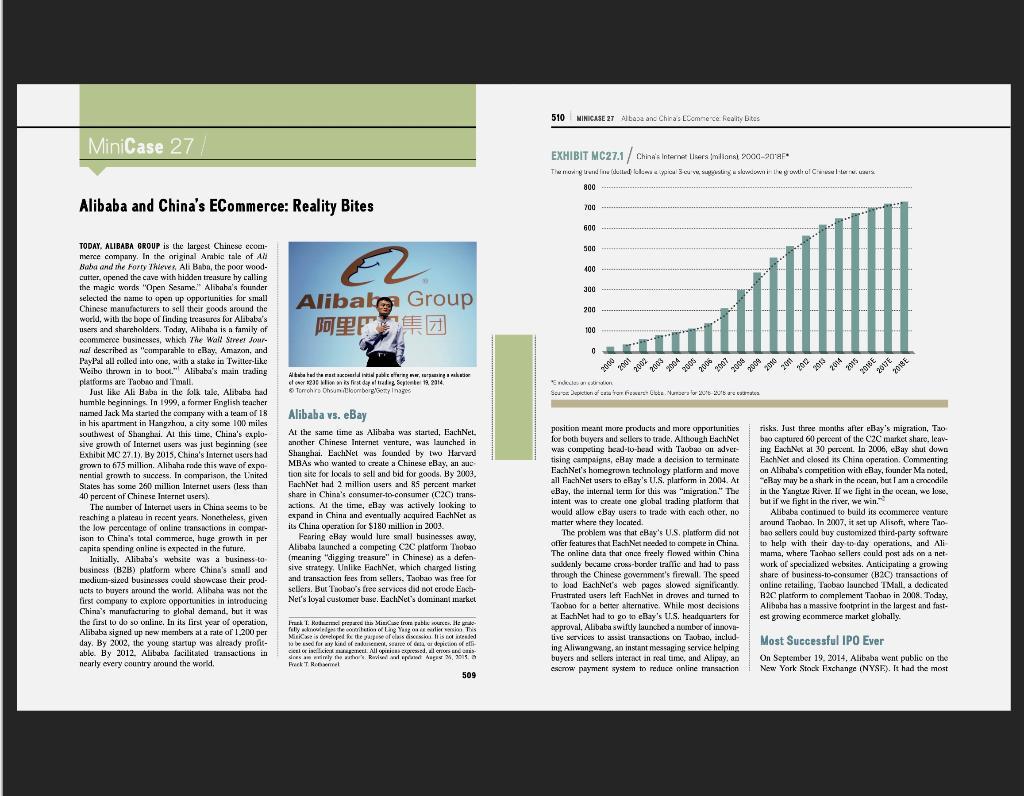
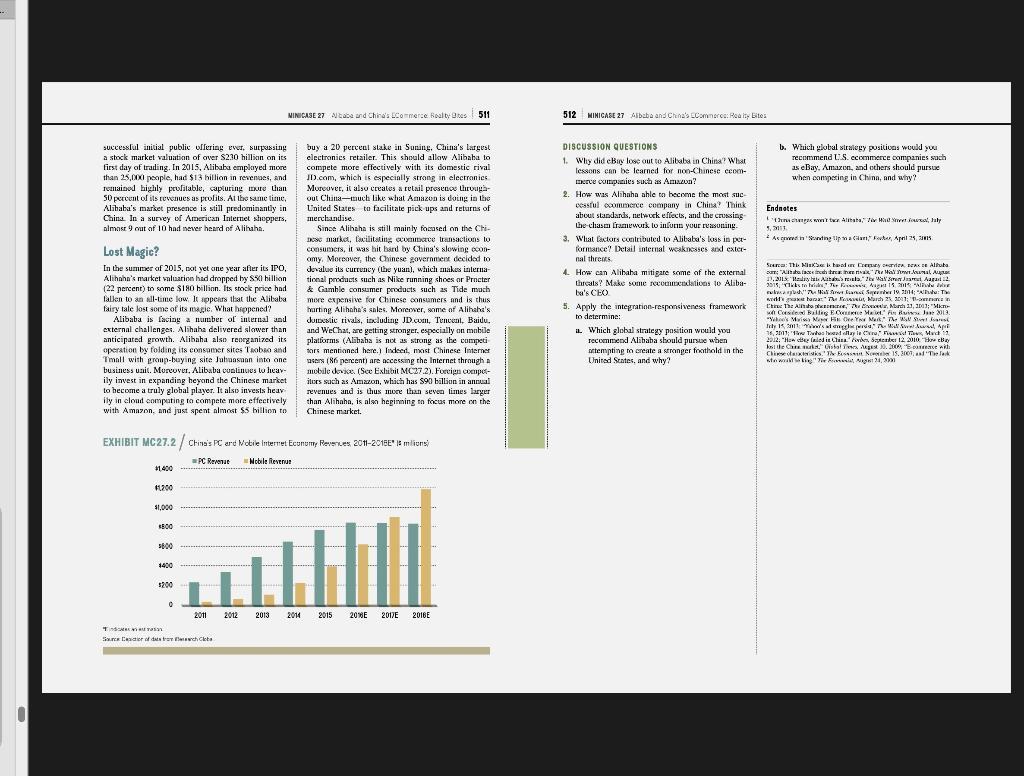
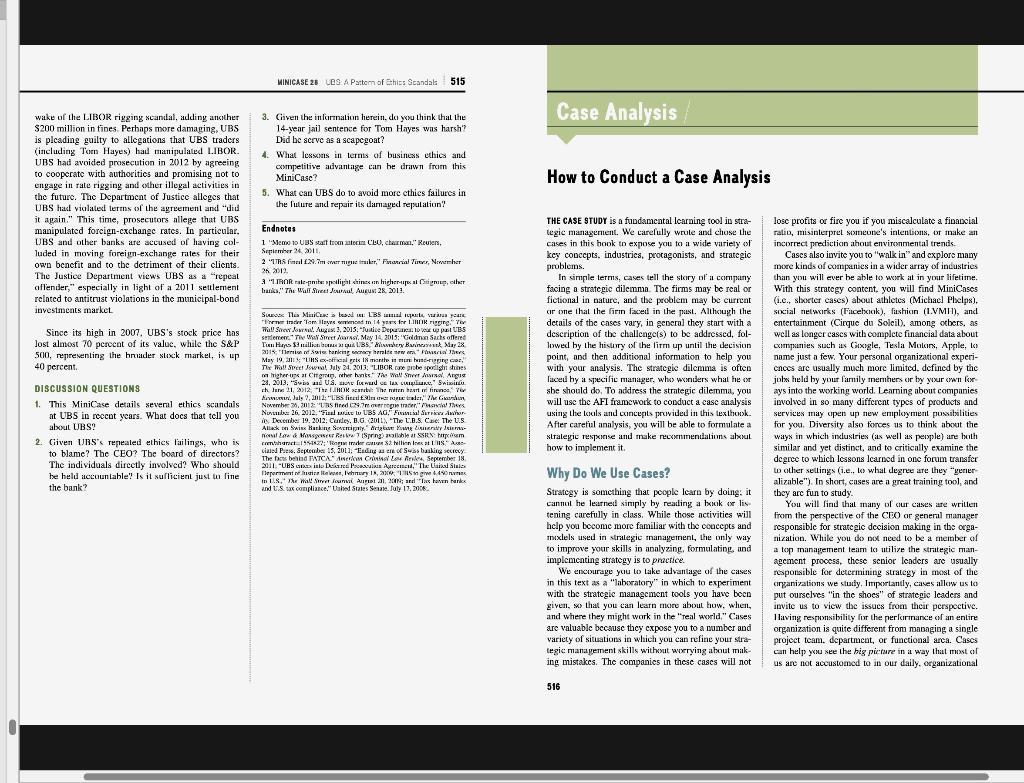
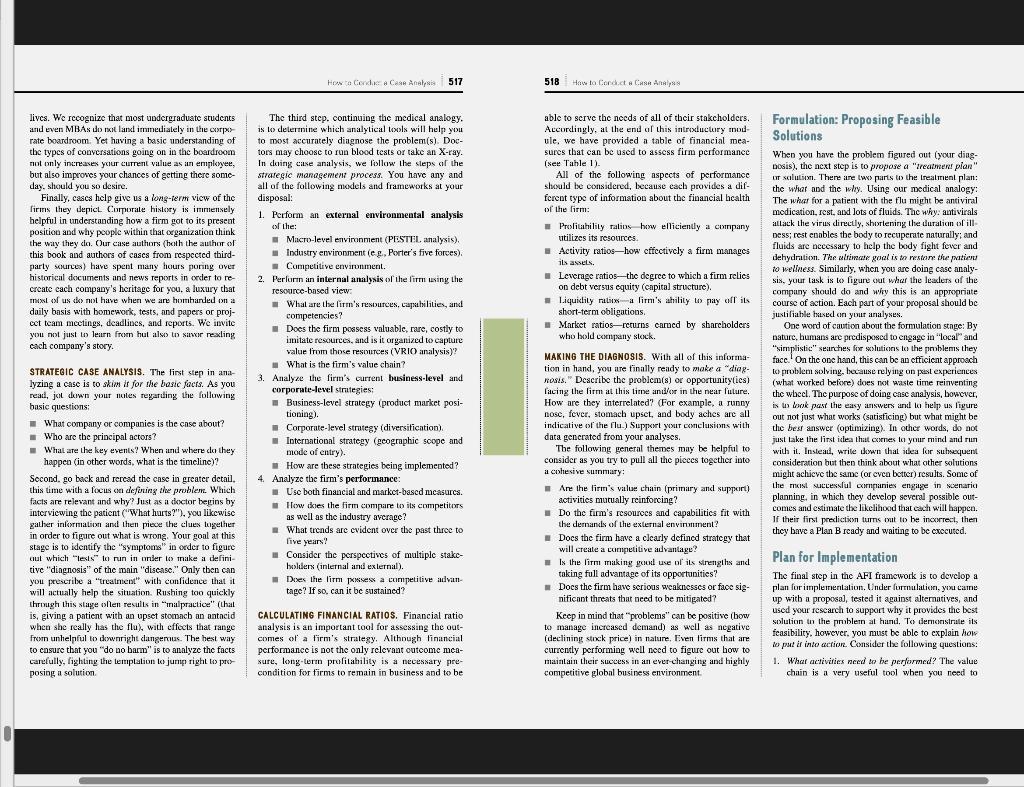
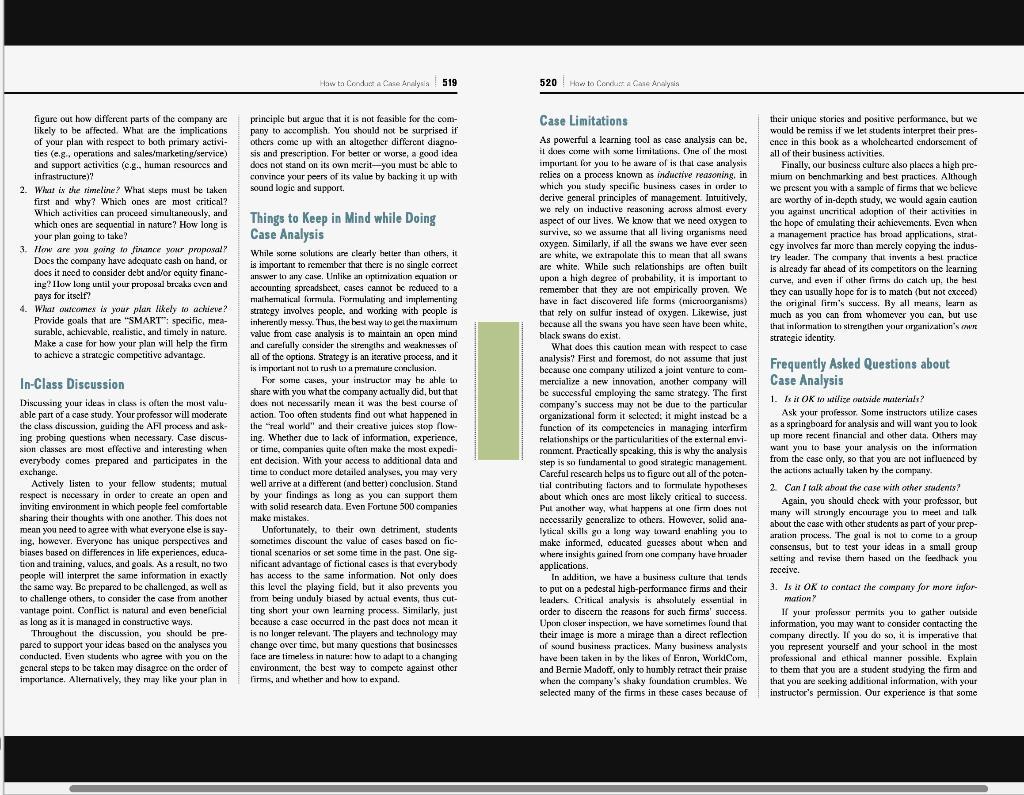
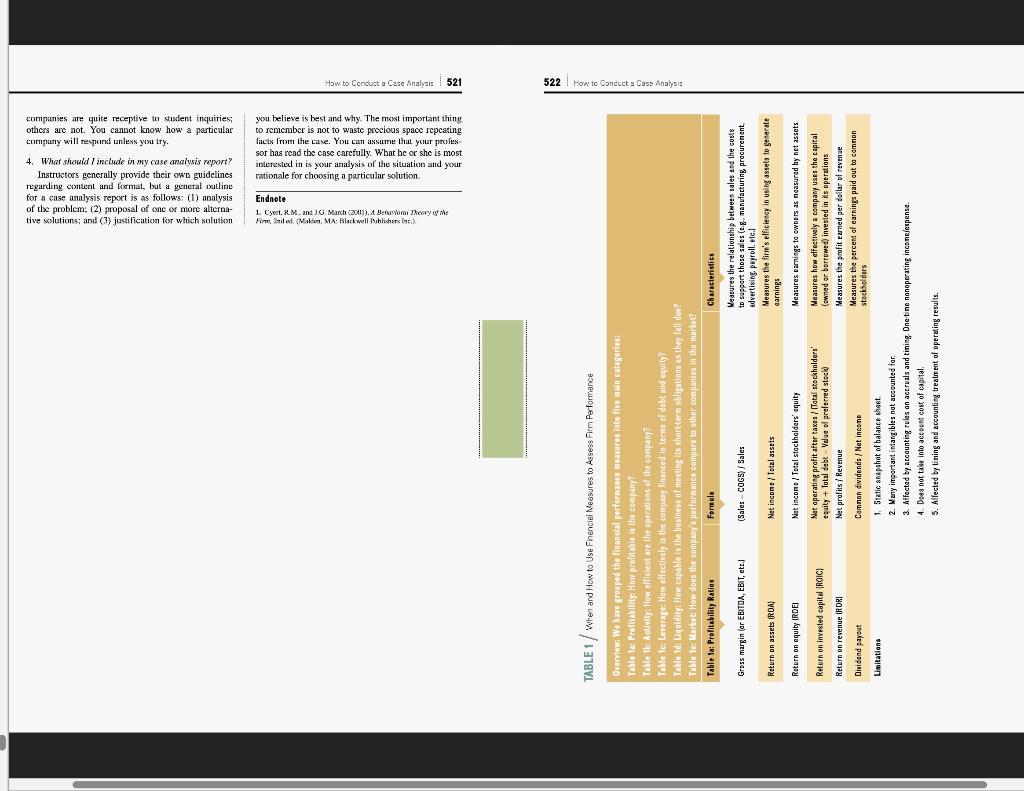
MiniCase 27 Alibaba and China's ECommerce: Reality Bites TODAY, ALIBABA GROUP is the largest Chinese ecom- merce company. In the original Arabic tale of Al Baba and the Forty Thieves, Ali Baba, the poor wood- cutter, opened the cave with hidden treasure hy calling the magic words "Open Sesame." Alibaba's founder selected the name to open up opportunities for small Chinese manufacturers to sell their goods around the world, with the hope of finding treasures for Alibaba's users and shareholders. Today, Alibaba is a family of ecommerce businesses, which The Wall Street Jour nal described as "comparable to eBay, Amazon, and PayPal all rolled into one, with a stake in Twitter-like Weibo thrown in to boot." Alibaba's main trading platforms are Taobao and Tmall. Just like Ali Baba in the folk tale, Alibaba bad humble beginnings. In 1999, a former English teacher. named Jack Ma started the company with a team of 18 in his apartment in Hangzhou, a city some 100 miles southwest of Shanghai. At this time, China's explo- sive growth of Internet users was just beginning (see Exhibit MC 27.1), By 2015, China's Internet users had grown to 675 million. Alihaha rode this wave of expo- nential growth to success. In comparison, the United States has some 260 million Internet users (less than 40 percent of Chinese Internet users). The number of Internet users in China seems to be reaching a plateau in recent years. Nonetheless, given the low percentage of online transactions in compar- ison to China's total commerce, huge growth in per capita spending online is expected in the future. Initially. Alibaba's website was a business to business (B2B) platform where China's small and medium-sized businesses could showcase their prod- ucts to buyers around the world. Alibaha was not the first company to explore opportunities in introducing China's manufacturing to global demand, but it was the first to do so online. In its first year of operation, Alibaba signed up new members at a rate of 1,200 per day. By 2002, the young startup was already profit- able. By 2012. Alibaba facilitated transactions in nearly every country around the world. E2. Alibaba Group Alibaba had the massaccold intal pable offering over, carpaaving a wakat of over 123 on its first day of trading September 19, 2014 Toroho Chumikoomberg/Getty Images Alibaba vs. eBay At the same time as Alibaba was started. EachNet. another Chinese Internet venture, was launched in Shanghai. EachNet was founded by two Harvard MBAs who wanted to create a Chinese eBay, an auc- tion site for locals to sell and bid for goods. By 2003, FachNet had 2 million users and 85 percent market share in China's consumer-to-consumer (C2C) trans- actions. At the time, eBay was actively looking to expand in China and eventually acquired EachNet as its China operation for $180 million in 2003. Fearing eBay would lure small businesses away, Alibaba launched a competing C2C platform Taobao (meaning "digging treasure" in Chinese) as a defen- sive strategy. Unlike FachNet, which charged listing and transaction fees from sellers. Taobao was free for sellers. But Taobao's free services did not crode Each- Net's loyal customer base. EachNet's dominant market Ink 1. Radi presa MiniCa in pabla aces. He filly acknowledge the countbation of Lang Yang on reader sesion This MixCase is developed be the pagese of class discession. It is not intended to be used for any kind of kiene, scarce of dea or depiction of elli- celo ili magnet. All opinions, al cos desainly the Red and pages 26, 2015, Fuck T Rebel 509 510 MINICASE 27 Albaca and China's Commerce Reality Bites EXHIBIT MC27.1/ China's Internet Users milionsit 2000-2018F The meaning tund fine (solled) follows a typica) Seu ve suggesting a slowdown in the growth of Clans Internas 800 700 600 500 400 300 200 100 0 2000 2001 2002 2003 2004 2005 2006 2007 2005 Education Souros Depiction of for Gewerch Globe. Namera for 2016-2016 are carat position meant more products and more opportunities for both buyers and sellers to trade. Although EachNet was competing head-to-head with Taobao on adver- tising campaigns, eBay made a decision to terminate EachNet's homegrown technology platform and move all FachNet users to eBay's U.S. platform in 2004. At eBay, the internal term for this was "inigration." The intent was to create one global trading platform that would allow eBay users to trade with each other, no matter where they located. The problem was that eBay's U.S. platform did not offer features that EachNet needed to compete in China The online data that once freely flowed within Chinal suddenly became cross-border traffic and had to pass through the Chinese government's firewall. The speed to load EachNet's web pages slowed significantly. Frustrated users left FachNet in droves and turned to Taobao for a better alternative. While most decisions at EachNet had to go to eBay's U.S. headquarters for approval, Alibaba swiftly launched a number of innova live services to assist transactions on Taobao, includ ing Aliwangwang, an instant messaging service helping buyers and sellers interact in real time, and Alipay, an escrow payment system to reduce online transaction 2009 2010 2011 2012 8162 2014 2015 2015E 2017E 2018E risks. Just three months after eBay's migration, Tao bao captured 60 percent of the C2C market share, leav ing EachNet al 30 percent. In 2006, eBay shut down EachNet and closed its China operation. Commenting on Alibaba's competition with eBay, founder Ma noted. "eBay may be a shark in the ocean, but I am a crocodile in the Yangtze River. If we fight in the ocean, we lose. but if we fight in the river, we win." Alibaba continued to build its ecommerce venture around Taobao. In 2007, it set up Alisoft, where Tao bao sellers could buy customized third-party software to help with their day-to-day operations, and Ali mama, where Tanhan sellers could post ads on a net- work of specialized websites. Anticipating a growing share of business-to-consumer (B2C) transactions of online retailing, Taobao launched TMall, a dedicated B2C platform to complement Taobao in 2008. Today, Alibaba has a massive footprint in the largest and fast- est growing ecommerce market globally. Most Successful IPO Ever On September 19, 2014, Alibaba went public on the New York Stock Exchange (NYSE). It had the most
Step by Step Solution
There are 3 Steps involved in it
Step: 1
Apply a PESTEL framework to analyze Alibabas external environment Then conduct a SWOT framework to analyze internal and external factors for Alibaba Answer The PESTLE PEST analysis report is a framewo...
Get Instant Access to Expert-Tailored Solutions
See step-by-step solutions with expert insights and AI powered tools for academic success
Step: 2

Step: 3

Ace Your Homework with AI
Get the answers you need in no time with our AI-driven, step-by-step assistance
Get Started


